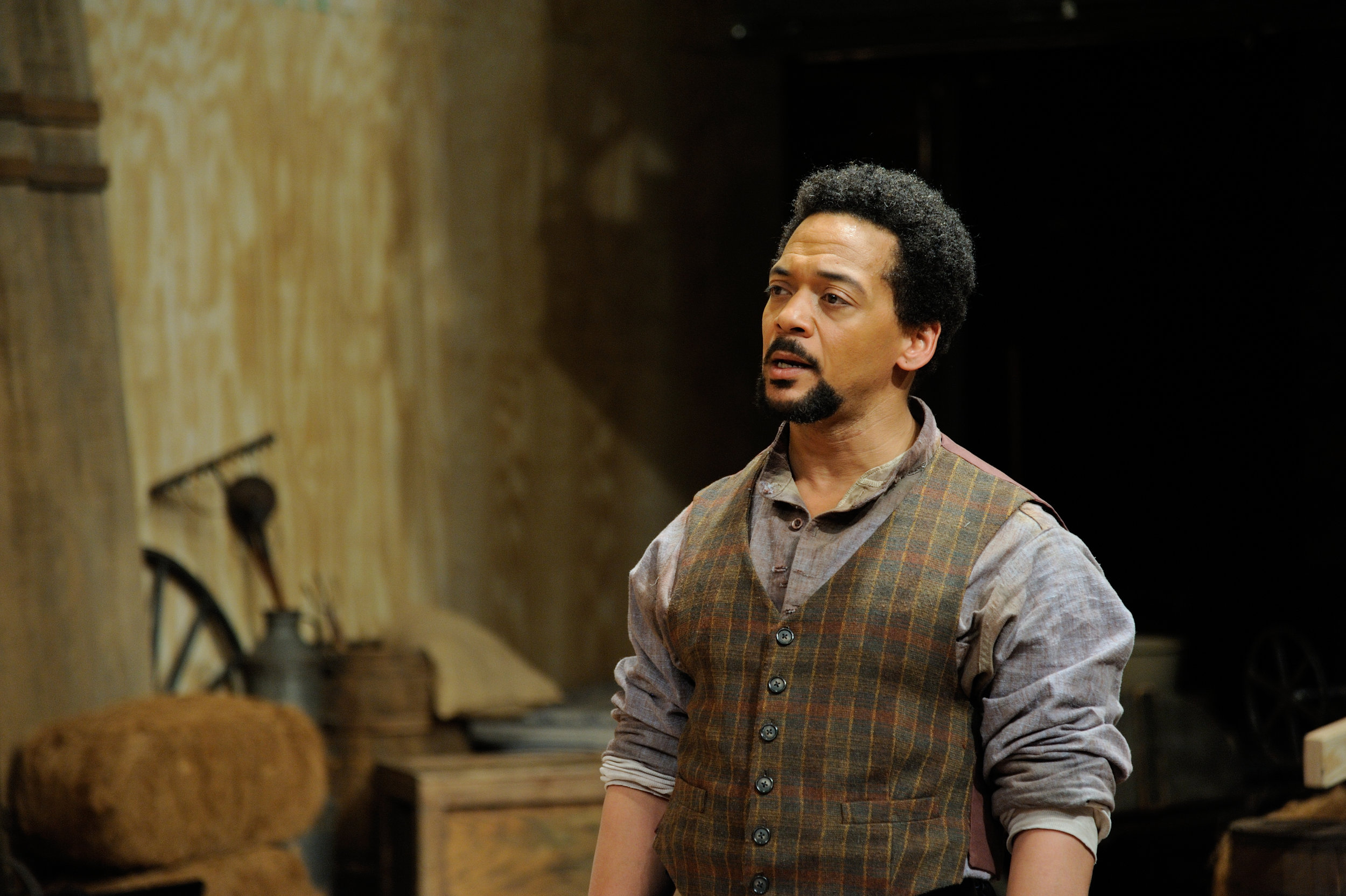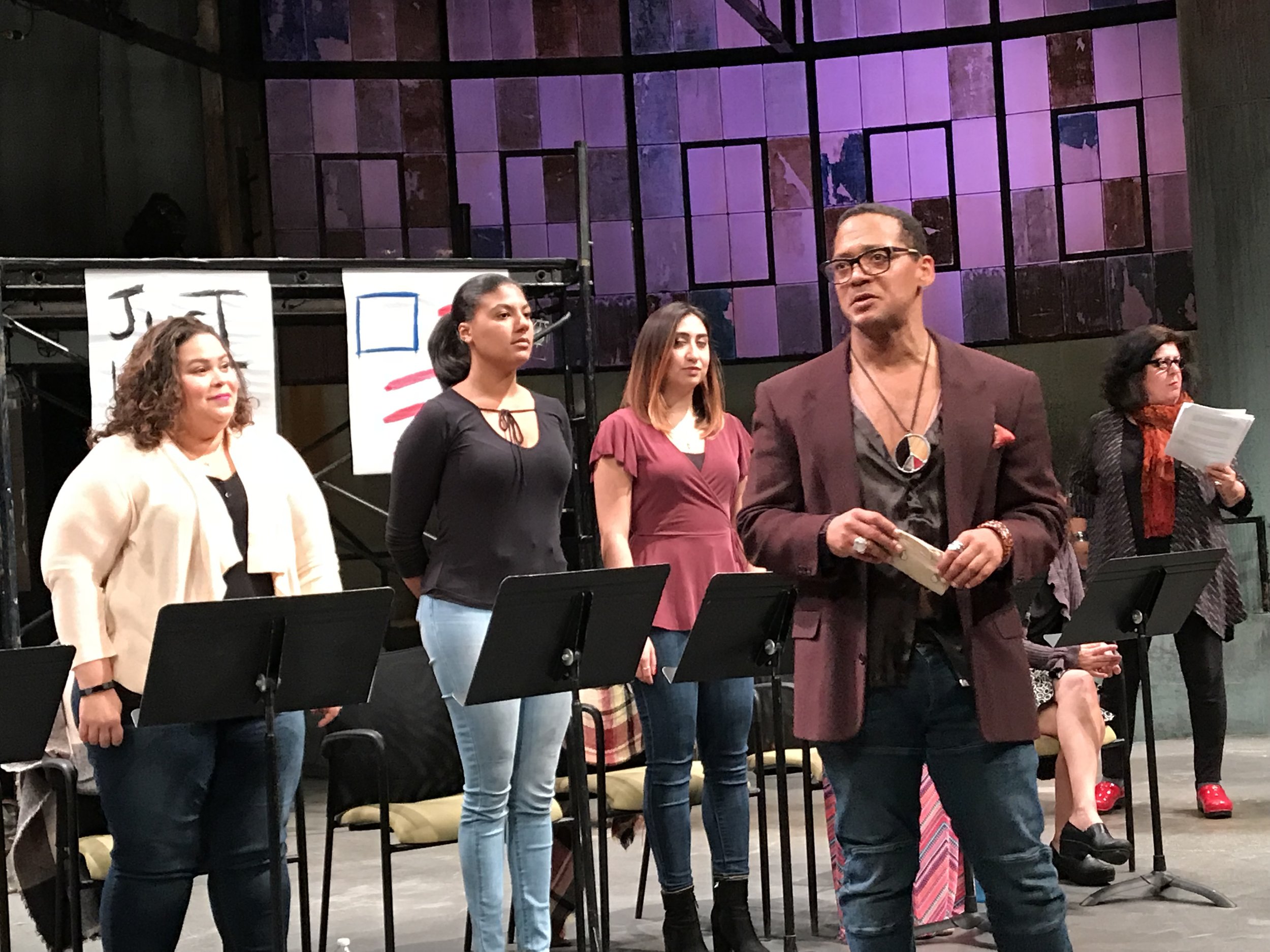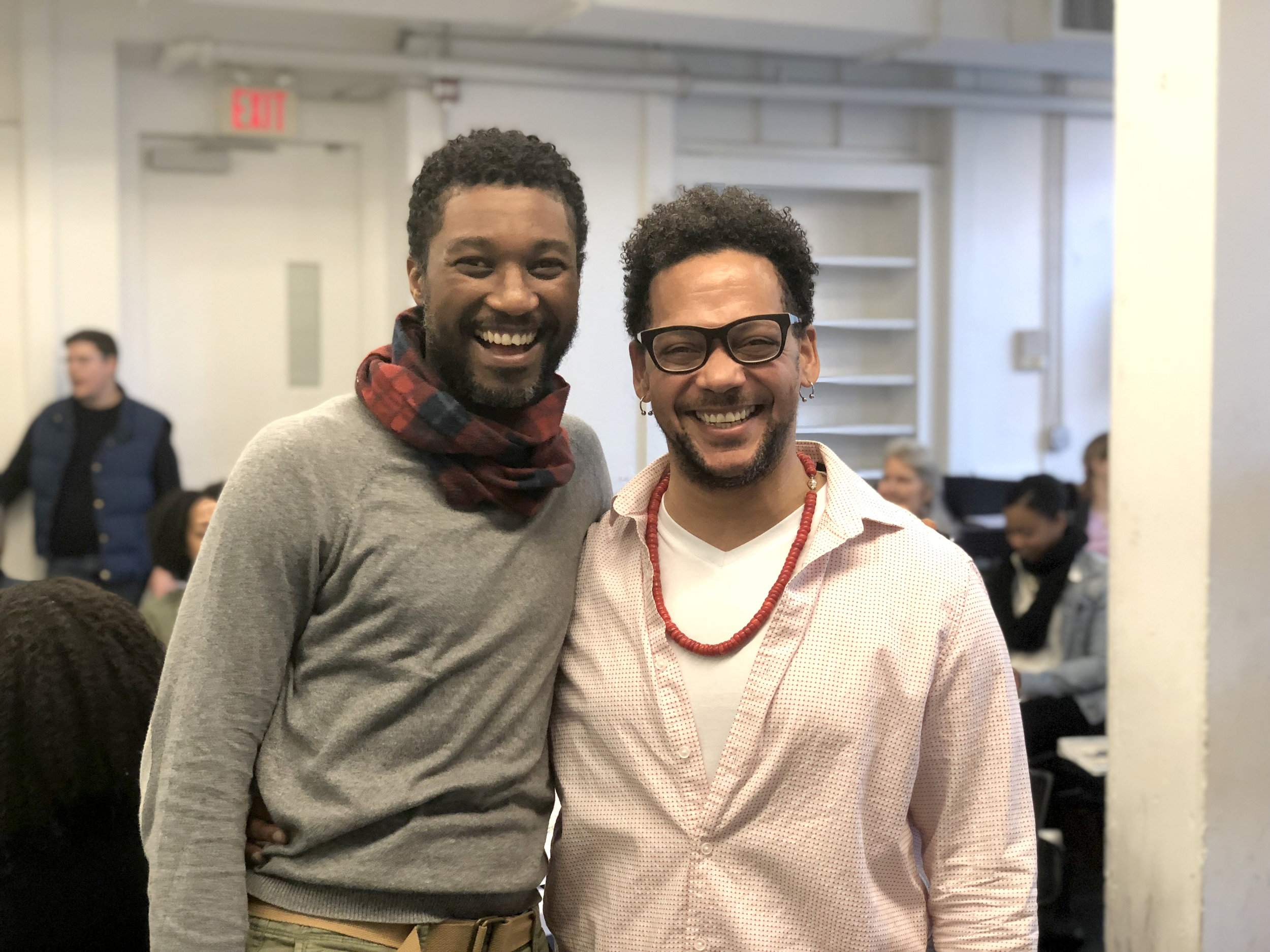From October 2018-March 2019, 21 diverse organizations participated in the First Wave pilot of the OF/BY/FOR ALL Change Network. We’re sharing stories from their journeys to become of, by, and for the communities that matter most to them. These stories were written by Titania Veda in partnership with the First Wave teams.
“Art, at its core, is not a commodity”
“I grew up in a family that only saw art as a luxury item. When we had a bit of money, we went bowling or to a fast food restaurant. Art was for the "other." I always viewed my role as an art maker as a job that was expendable. I understood my place as an art maker from a place of commodity versus from a place of service,” said Joe Wilson Jr.
Today, Joe Wilson Jr. lives and works in full service to the arts. Joe is Trinity Repertory Theater’s Coordinator of Activism Through Performance. Joe has been a member of the resident acting company since 2005, a school liaison, and a community connector in Providence, Rhode Island. Performing, serving on various boards, and teaching regularly at schools, Joe is one of Trinity Rep’s most recognized faces onstage and off.
“Art, at its core, is not a commodity. It is a response to the world around us and our desire to seek truth and justice, and celebrate our common humanity,” said Joe.
%20-%20Joe%20Wilson,%20Jr.%20as%20Jud%20-%20photo%20by%20Mark%20Turek.jpg)
Joe Wilson Jr. in Oklahoma! (Photo: Mark Turek)
“Putting on a black play doesn't break down barriers”
Trinity Rep has tried many approaches over the years to involve and reflect their diverse community in Providence. They were early adopters of color-blind casting, which sometimes proved problematic. Trinity Rep also focuses on diverse programming, such as bilingual plays and sensory-friendly shows. But Trinity Rep remains largely supported and enjoyed by older, white audience members.
“Putting on a black play doesn't break down barriers for people who have historically felt un-welcomed in institutions we assume are welcoming communal spaces. Even a great production like Black Odyssey doesn't guarantee folks will have the capacity, the will, or the inspiration to pick up a phone and buy a ticket," said Joe.

Cloteal L Horne, Joe Wilson Jr., and the company of black odyssey. (Photo: Mark Turek)
Indeed, the situation Joe faced in his youth remains prevalent in families today. Theatre, like other art forms, continues to be seen as a luxury item. When it comes to being inclusive to various communities, there are socio-economic factors to consider according to Theresa Moore, a Trinity Rep board member.
“People have obligations or needs, which means a choice between $40 for a ticket versus something else your family might need. If you’re going to spend that money on a ticket, you want to spend it on programming that's representative of your culture and community. To see things that are of, by, and for your community,” said Theresa.
“An opportunity for our community to have a conversation”
In 2015, Rebecca Noon, Artistic Associate for Community, presented Joe with the opportunity to participate in a residency called Every 28 Hours, a theatrical response to the killing of Michael Brown and related events in Ferguson, Missouri. The play was brought back to Providence and grew into Trinity Rep’s America Too project, an annual event created of, by, and for the community in response to local issues.
For example, in 2017, Rhode Island Latino Arts (RILA) and Trinity Rep co-hosted a reading of Just Like Us, a play based on the real story of DREAMers that shows the human cost of ending the DACA program.
%20-%20Joe%20Wilson,%20Jr.%20and%20participants.jpg)
Just Like Us (2017) - Joe Wilson, Jr. and participants. (Photo: Mark Turek)
“America Too is an opportunity for our community to have a conversation about the arts. The challenge with Trinity Rep is that it’s still perceived as inaccessible. There’s still a disconnect with the outreach. It’s not about sending an email out but making inroads to have face-to-face communication and building relationships,” said April H Brown, Langston Hughes Community Poetry Reading Program Director and a 2019 America Too playwright.
The birth of America Too and Joe’s new role were one of several strategic steps Trinity Rep made to invest in community engagement and deepen their efforts to shift the lens from transactional to transformational art.
“The Every 28 Hours play began the process of me thinking of my work as a writer but also of thinking of my work as a critical way we can engage communities in dialogue. It's not just about me making a play that I hope people come to see but it's about me using my work to make work of, by, and for - that can reflect our community and that can be a way that community can continue to engage in healthy dialogue,” said Joe.
“The power that I have for positive change”
Trinity Rep aims to become more diverse, equitable, and inclusive. They also want to resonate with modern society. This required a shift in thinking about the theater’s programming and outreach, asking questions like: Is this building community? Is this furthering the agenda of community? Does this speak to my community? Does my community care about this?
“I wouldn't understand the relationship a play would have with my community unless I was out there, engaged with them,” said Joe. “Now I’m at the point in my career where I fully understand the power of how I can make other people feel, the power that I have for positive change, and the responsibility I have to promote that change and provide a space for that change.”
%20-%20Jude%20Sandy%20and%20Joe%20Wilson,%20Jr.%20-%20photo%20by%20Maxwell%20Snyder.jpeg)
Rehearsal for black odyssey (2019) - Co-Directors Jude Sandy and Joe Wilson, Jr. (Photo: Maxwell Snyder)
